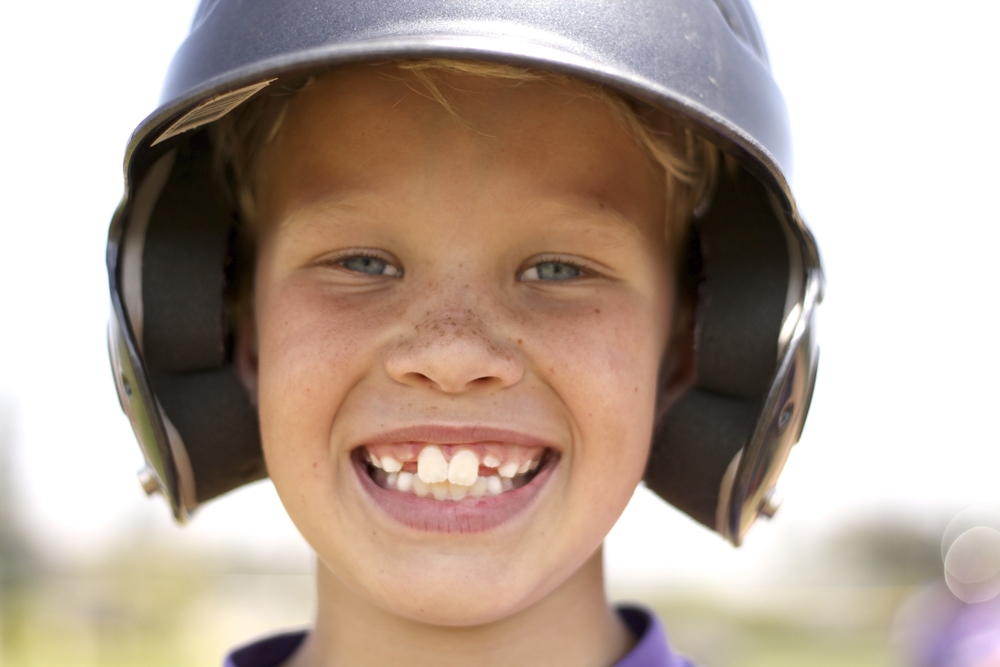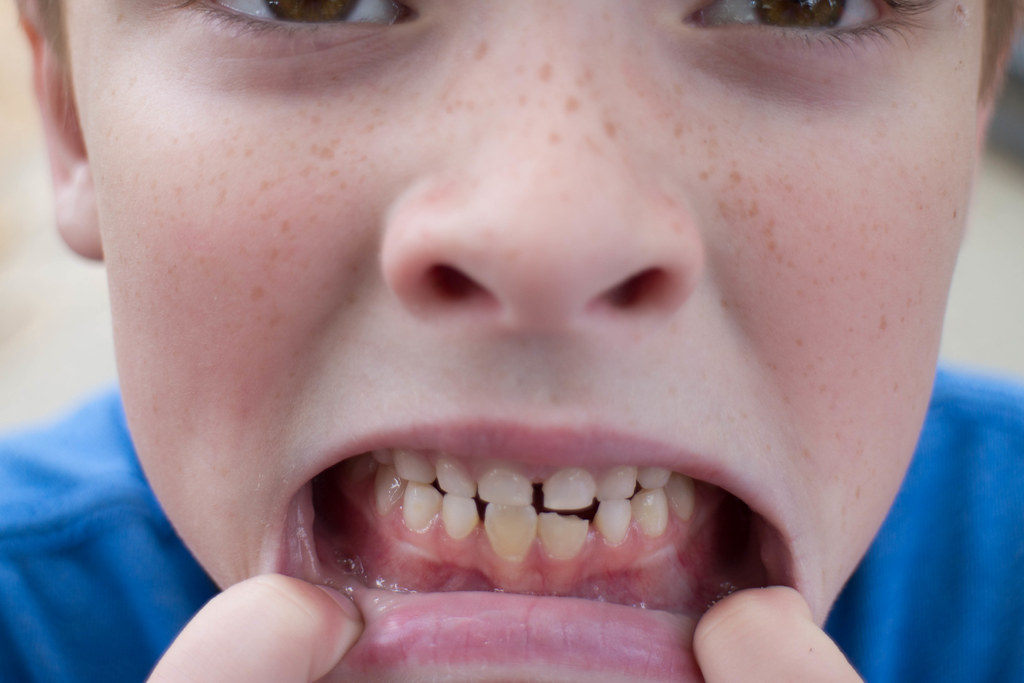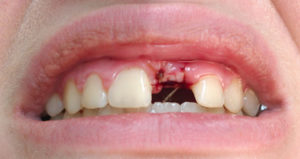
Guest post by Tiffany Lawton
The idea of your child getting a chipped tooth can be nerve-wracking, to say the least. No one wants to think about their children being hurt in any way, and dental problems are no exception.
However, a child having a chipped tooth is more common than you might think. A chipped tooth in a child can come from a baseball or other sports-related accident or can even happen from running into a piece of furniture, or even just falling. It’s also possible, especially with baby teeth, that a small chip can occur simply because of “wear and tear.” Baby teeth often have chips along the edges because they are weaker. This typically shouldn’t cause any concern, but even if it seems like a minor issue, you still might want to err on the side of caution and see your child’s dentist.
What if it’s more than a little damage? What should you do as far as a child’s chipped tooth that seems more severe? What if your child’s tooth has fallen out? The following are some of the initial things that you should know if your child chips a tooth, and the steps you should take to deal with the situation.

Stay Calm
As parents sometimes the natural tendency when any injury occurs is to panic, and this is going to set the tone for your child. Rather than panicking, try to remain calm because if your child sees that you’re calm, they will likely be as well.
You should contact your child’s dentist right away or as soon as possible. You should also have your child rinse their mouth with water, and you can place a compress on their face to alleviate the swelling.
Don’t Try to Replant a Baby Tooth, But Do Try to Replant a Permanent Tooth
 If your child fully knocks out a baby tooth, don’t try to replant it because it can damage the permanent tooth. A dentist will instead likely focus on helping to manage symptoms and preventing infection. If your child fully knocks out a permanent tooth, it’s best if it can be replanted within five minutes.
If your child fully knocks out a baby tooth, don’t try to replant it because it can damage the permanent tooth. A dentist will instead likely focus on helping to manage symptoms and preventing infection. If your child fully knocks out a permanent tooth, it’s best if it can be replanted within five minutes.
This means that you put the tooth back in the socket, and have your child bite down gently on something like a washcloth. If you can’t replant it, dentists recommend that you put the tooth in a container with something like cold milk or saline solution. Then, you should get dental care for your child right away. Always try to bring the tooth fragment with you, if possible.
Do Some Research
Of course, the ultimate course of treatment for a tooth injury or trauma to the tooth is going to be up to a dentist. Even so, you can do some research and learn more about chipped teeth so that you are prepared when you visit the dentist. This can especially be true if you’re not in a situation that’s a dental emergency, and perhaps you can’t get an immediate appointment with your child’s dentist.
For example, as you research, you’ll find that your child’s dentist will more than likely do nothing to treat a chipped or damaged baby tooth since that tooth will eventually be replaced. If there is trauma that is causing pain or discomfort, this may be treated, rather than the actual damage to the tooth.
In some cases, if a baby tooth is damaged and the child is close to the time their permanent teeth will come in, a dentist may suggest the removal of the damaged tooth to preserve the integrity of the permanent tooth that comes in.
If your child chips a permanent tooth, the options are different. Some of the ways chipped teeth are treated include:
- Dental bonding or composite filling attached to a broken tooth (usually this is reserved for large chips)
- Composite restoration to help alleviate sensitivity and for aesthetic reasons
- Extrusion, which is for very severe broken teeth with fractures to the root
Other options include a root canal, but only when the pulp is exposed, a crown which is for larger fractures, and veneers which are materials that are placed over a tooth.
Once your child receives dental care for their chipped tooth, it may not be the end of treatment. The problem with chipped teeth is often that they create underlying conditions, such as an abscess. It’s important to make sure that you not only receive care as quickly as possible for your child’s broken tooth, but also that you keep up with the treatment plan recommended by your dentist to prevent infections and ongoing dental problems.
Tiffany is a wife, mother, writer, and health enthusiast. While Tiffany was working as a dental hygienist she became very passionate about oral health. Now that she is home with her kids, she finds time to write and share her passion for oral health with others online. When she isn’t writing you can find her in the kitchen baking with her kids or in the front yard gardening. Tiffany loves spending time with her family and living an active, healthy life.




